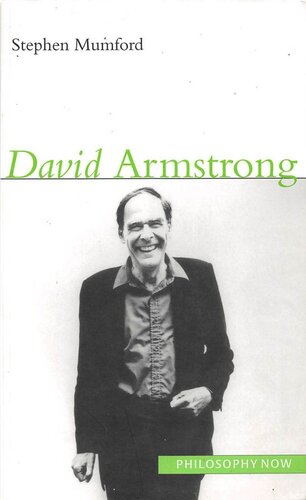

Most ebook files are in PDF format, so you can easily read them using various software such as Foxit Reader or directly on the Google Chrome browser.
Some ebook files are released by publishers in other formats such as .awz, .mobi, .epub, .fb2, etc. You may need to install specific software to read these formats on mobile/PC, such as Calibre.
Please read the tutorial at this link: https://ebookbell.com/faq
We offer FREE conversion to the popular formats you request; however, this may take some time. Therefore, right after payment, please email us, and we will try to provide the service as quickly as possible.
For some exceptional file formats or broken links (if any), please refrain from opening any disputes. Instead, email us first, and we will try to assist within a maximum of 6 hours.
EbookBell Team

4.7
76 reviewsDavid (D.M.) Armstrong is one of Australia's greatest philosophers. His chief philosophical achievement has been the development of a core metaphysical program that covers the topics of universals, laws, modality, and facts - a naturalistic metaphysics, consistent with a scientific view of the natural world. Stephen Mumford offers an introduction to the full range of Armstrong's thought. Beginning with a discussion of Armstrong's naturalism - his most general commitment - and his realism about universals, Mumford then examines Armstrong's theories of laws, modality, and dispositions, which are the basics of his core theory. With this in place, Mumford explores Armstrong's ideas on perception, mind, and belief before returning to metaphysics in the final chapters, looking at truth and the new view of instantiation. The book is a dispassionate, fair, and unbiased account of Armstrong's thought which considers the areas of weakness in his work while encouraging further debate.